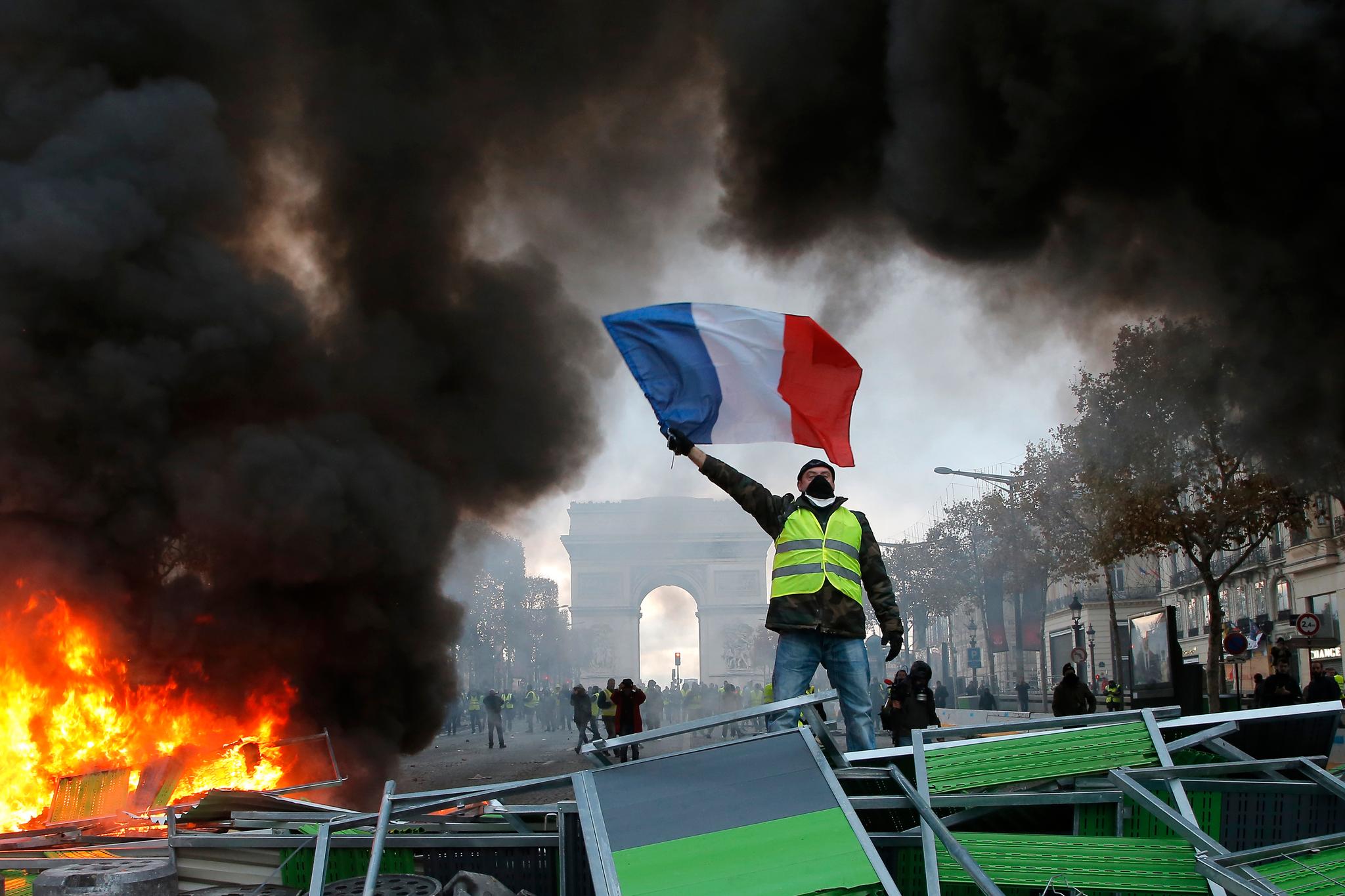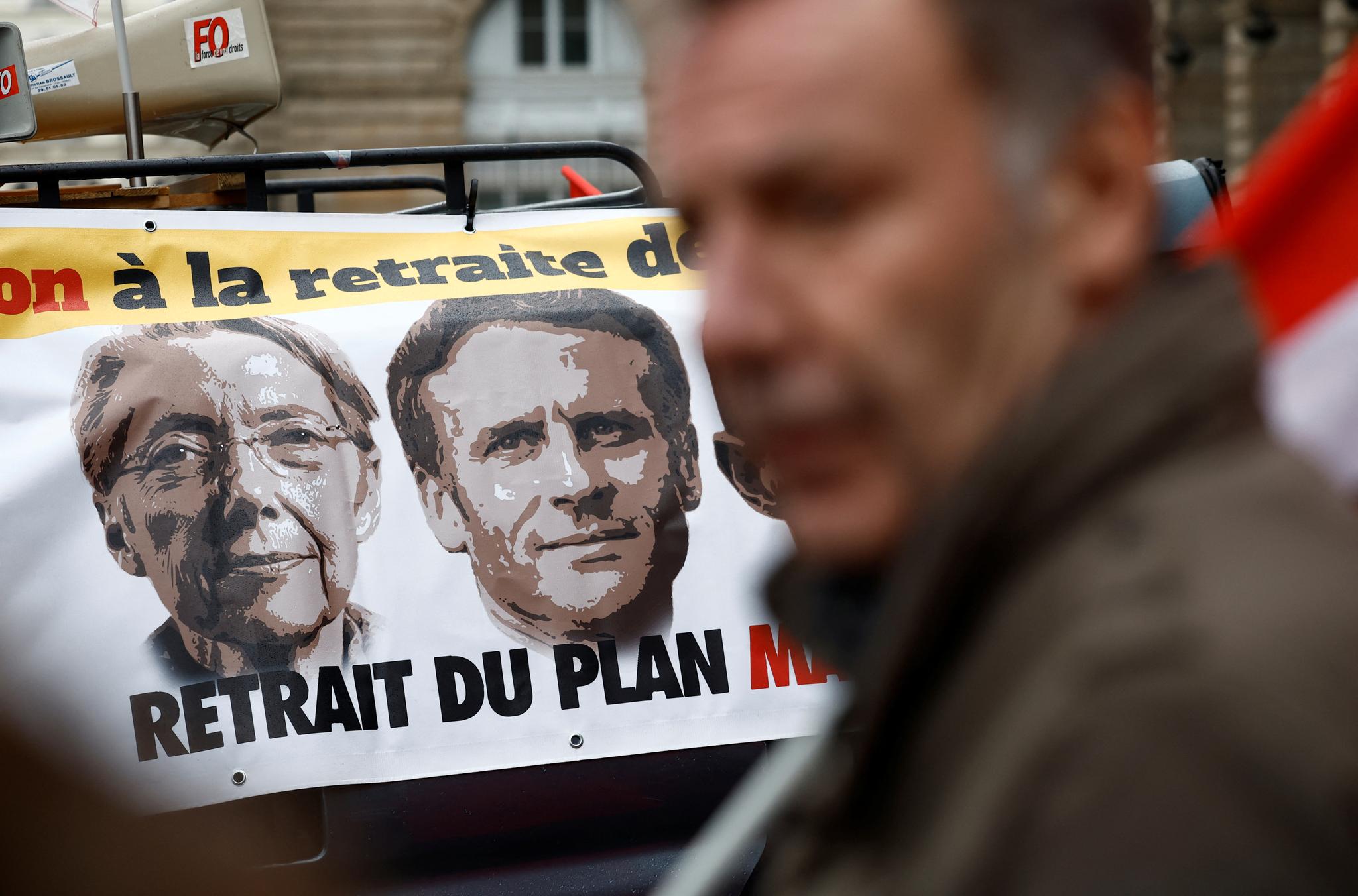France is preparing for another mobilization against pension reforms on Tuesday, while President Emmanuel Macron and Prime Minister Élisabeth Borne meet on Monday morning.

On Friday, the town hall in Bordeaux was set on fire. In Paris, protesters smashed shop windows and attacked McDonald’s restaurants.
Garbage floated in the streets, and protesters blocked entrances to several campuses.
More than one million people took to the streets across France on Thursday, with 119,000 in Paris, according to Interior Ministry figures.
Police fired tear gas at protesters in the capital, and 80 people were arrested across the country.
For several weeks, France has been striking and demonstrating against the reforms, which involve increasing the retirement age from 62 to 64. The accrual period for full pensions must also be extended to 43 years.
On Tuesday, they mobilized for the tenth time for action against the reforms, which have seared minds.
1. Why are the French so angry?
The argument for raising the retirement age is to cut costs and secure the pension system. As in other countries, France is experiencing that the elderly are living longer and the birth rate is falling. State tax revenues will not meet social costs if people are no longer working.
France spends 14 percent of its Gross Domestic Product (GDP) on public pensions, nearly double the OECD average, according to The Economist.
The opponents of the reform believed that they were losing the good that they had worked for all their lives. Many also believe that it is the hard workers, with the tough jobs, who are hit hardest.
At the very least, many are reacting to the way President Macron has introduced reforms. Without a majority in parliament, he used article 49.3 to pass the law.
The paragraph gives a government without a majority an opportunity to pass laws by force. This gave the opposition little room for influence.
The only card they have is a motion of no confidence, which could bring down the government. Last Monday, only nine more votes would have happened.
2. What will happen next?
The matter has now been turned over to the Constitutional Council, a court which will decide whether the content of the reforms and the manner in which they are debated are in accordance with the Constitution. This was a prerequisite for announcing reforms, he wrote Le Monde.
The use of article 49.3 of the law has become a symbol of the current government forcing something.
Prime Minister Élisabeth Borne tried to reassure the French people on Sunday by saying the government would not use the clause more than once this year except in budget matters.
He also tried to get unions to meet saying he was “in a position” for them to meet with them on areas other than the retirement age question.

3. How long will the French demonstrate?
Before the last mobilization, last Thursday, many French people wondered if this would be the last. After several days of action and several weeks of strikes, some union members were concerned that fewer people would take to the streets, they wrote Le Figaro.
But that same evening, the association called for new action on Tuesday 28 March.
So far, there has been little indication that France is tired of protesting. On Sunday night, Jean Luc Melonchon, a left-wing politician, said that even if the Constitutional Council passed the reforms, the left would continue to oppose pension reforms, according to Liberation.







:quality(70):focal(2632x1616:2642x1626)/cloudfront-eu-central-1.images.arcpublishing.com/mentormedier/ZNNRYRVNU6TUOQBBL22PE3O37M.jpg)
